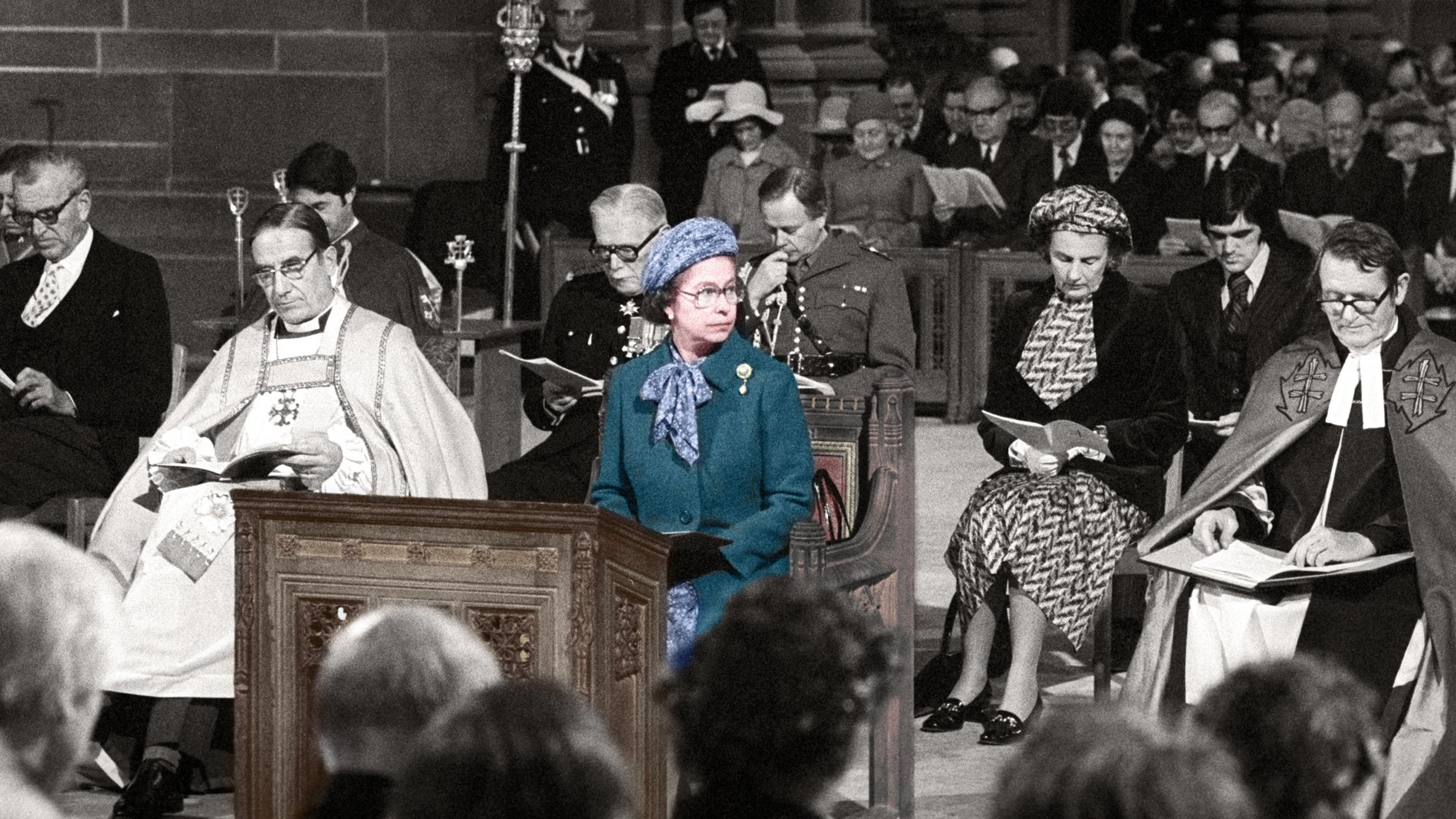Queen Elizabeth and Classical Education
Receiving a classical education means, in part, learning the western tradition. Martin Saints students are apprentices, young men and women who are being formed to receive and understand their inheritance.
We heard about the Queen's death while we were on our school camping trip. That night around the campfire, Deacon Roberts spoke about why we honor the Queen and what the English monarchy means for classical education. Here is a summary of what he said:
Our syllabus includes great milestones in English history and literature. We read Beowulf, Chaucer, Shakespeare, Jane Austen, Gerard Manley Hopkins, and G.K. Chesterton because our culture is rooted in their soil.
One particular episode happened eight hundred years ago in Runnymede meadow, along the Thames, twenty miles from London, where the (Catholic) Archbishop of Canterbury brokered a peace treaty between King John and his rebellious barons. We now call this treaty the Magna Carta, the Great Charter, for it established that no one is above the law, that even a monarch must obey his own laws and cannot rule by whim, and that his subjects are guaranteed certain liberties.
Reaffirmed by every subsequent king and queen, the Magna Carta shaped the authors of our own American constitution in the late 18th century. There is no American liberty without our English ancestry.
In 1963, at this same Runnymede meadow, Queen Elizabeth and Mrs. Jacqueline Kennedy dedicated a memorial to the recently slain American president. On this ancient site is a block of granite inscribed with a quotation from President Kennedy's inaugural address:
"Let every Nation know, whether it wishes us well or ill, that we shall pay any price, bear any burden, meet any hardship, support any friend or oppose any foe, in order to assure the survival and success of liberty."
In 1940, when she was a 14 year old princess, Elizabeth made her first radio address. Although the Nazis had already been bombing London for a month, it would be a full year before America entered the war. The young princess was gently rousing the American conscience, reminding us that it was time to sacrifice in order to protect liberty and justice.
Elizabeth's own life was shaped by sacrifice, duty, and deep Christian faith. In the video to the right, from her first Christmas address as Queen and very much worth watching today, she called us all to a "special kind of courage" for living in modern, changing times.
Besides her personal virtues, it's also worth pausing to respect monarchy itself. Obviously, monarchy can be abused and democracy has its benefits. Few Americans need to be reminded that in this country, we adopted democracy as our way of checking abuses of power. But democracy has its costs too, for a mob can be as deluded and oppressive as any tyrant.
The modern west has confused democratic government with democratic morality. Perhaps because of our democratic instincts, our culture is chronically vulnerable to this confusion. We sometimes live as if morality and truth change with majority opinion, and we don't seem to know how to restrain ourselves or admit any limits.
A constitutional monarchy, of the kind established at Runnymede and still alive today, stands for the idea that law and morality are accountable to something greater than majority opinion. This monarchy testifies that law and morality come from above, and are received by a nation through the wisdom of tradition. This kind of monarch, relatively aloof from popular will and explicitly accountable to God, should remind us of first things, of the first and fundamental truths of our common life together.
Sometime in the next few months, King Charles III will receive his crown at Westminster Abbey. Benedictine monks founded this church a thousand years ago, and he will be the 39th monarch crowned at the foot of its altar. The heart of the coronation ritual is even older than the Abbey. King Charles, like his ancestors, will be anointed with chrism oil, the same oil that we Catholics use at baptism and ordination. The crowning is, at its core, a Catholic sacramental, testifying that all earthly rule relies upon grace and is accountable to God.
We are a classical school. We study history for the love of it and in order to discern truth. Queen Elizabeth II embodied ancient history and led us through recent history. She embodied devotion, duty, the rule of law, and Christian governance. She died on September 8th, the feast of the birthday of Mary, mother of God. Let us pray that the Queen of England is now face to face with the Queen of Heaven.
And let us pray for her successor, King Charles III. You might be interested to read about his ideas, or watch this short video excerpt. He appears well-prepared to deliver a message that is very needed in this historical moment.

